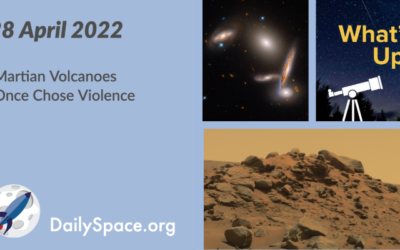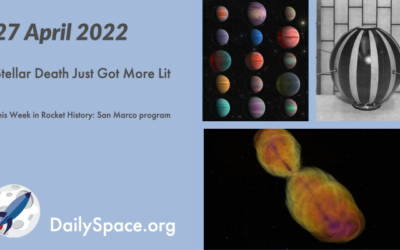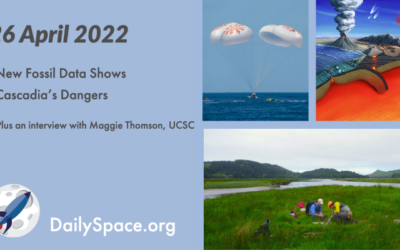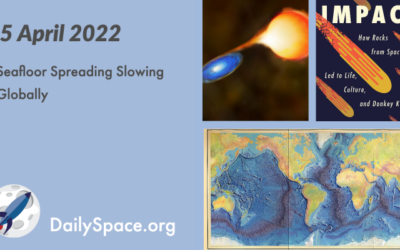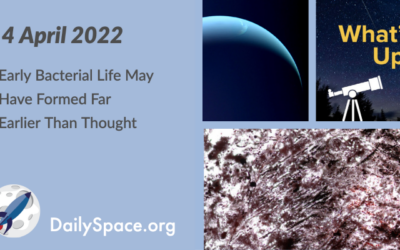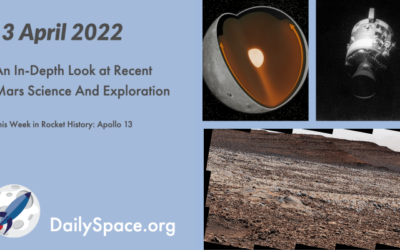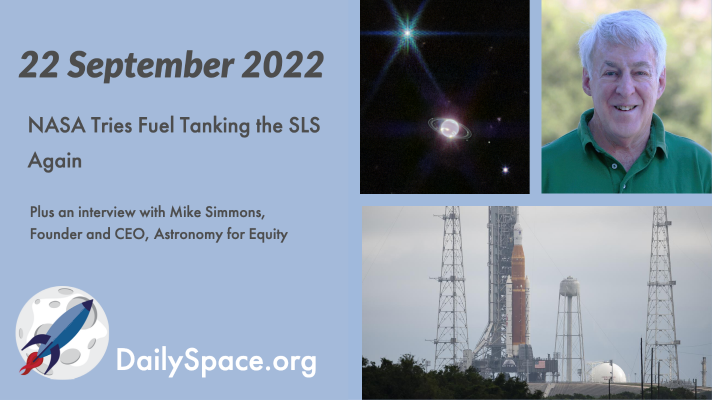
NASA Tries Fuel Tanking the SLS Again
In advance of the next scheduled launch attempt, NASA conducted another test to fill the fuel tanks onboard the Space Launch System rocket. The results were mixed, but the launch is still on schedule. Plus, a crewed launch, beautiful images, and an interview with Mike Simmons from Astronomy for Equity about sending telescopes to underprivileged students.
Catch us on NowMedia TV
Saturday 11pm Central / midnight Eastern
Sunday 10pm Central / 11pm Eastern
Watch live on these stations: Houston 21.10, Atlanta 22.10
or tune-in on Apple TV, Roku, YouTube Live, or Amazon Prime
Martian Volcanoes Once Chose Violence
An analysis of images taken by the Spirit rover of olivine-rich rocks in Gusev crater has revealed a much more violent volcanic origin than originally thought and one that likely occurred early in Mars’s history. Plus, balloon science, more Mars, more volcanoes, pretty Hubble images, and What’s Up (a supernova!).
Stellar Death Just Got More Lit
Remember that new object, COW, named for a strange supernova? We’ve seen four more of these Fast Blue Optical Transits, and new research may even have figured out just how and why they occur. Plus, Crew-4 launches, a bunch of planetary science news, micronovae, and this week in rocket history, we look back at the San Marco program.
New Fossil Data Shows Cascadia’s Dangers
An analysis of sediment core samples taken at the Salmon River Estuary in Oregon provides evidence that the massive 1700 Cascadia earthquake caused 15 meters of slip along the shoreline, which lead to over a meter of coastal subsidence. Plus, all the rocket launches, a few mission updates, making Mars bricks with urea, and an interview with Maggie Thompson from UC Santa Cruz about using methane as a biosignature.
Seafloor Spreading Slowing Globally
An analysis of the relative movements of 18 tectonic ridges over the past 19 million years finds that the rate of seafloor spreading has dropped by about 40% on average globally. Plus, stars are getting naked, climate change is heating things up, and we review “Impact: How Rocks from Space Led to Life, Culture, and Donkey Kong” by Greg Brennecka.
Early Bacterial Life May Have Formed Far Earlier Than Thought
An analysis of microscopic features in rocks from the Nuvvuagittuq Supracrustal Belt in Quebec, Canada, which date back between 3.75 and 4.28 billion years, finds evidence of possible microbial life. Plus, a supermassive black hole precursor, temperatures on Neptune, check-ins with various spacecraft, and our weekly What’s Up segment.
An In-Depth Look at Recent Mars Science And Exploration
A new paper looks at marsquakes and what is causing them, which turns out to be magma moving. And Curiosity has found rocks it needs to go around. Then there is the weather on Mars. Plus, lunar formation, a giant comet, and this week in rocket history, we look back at Apollo 13.


 We record most shows live, on Twitch. Follow us today to get alerts when we go live.
We record most shows live, on Twitch. Follow us today to get alerts when we go live.

